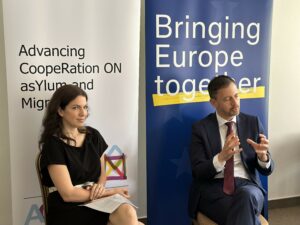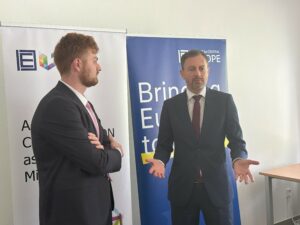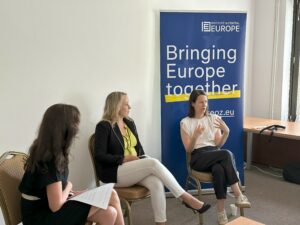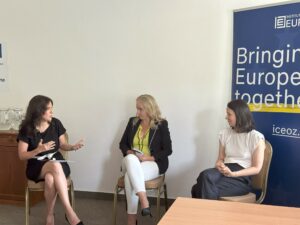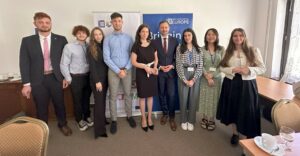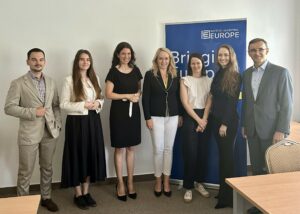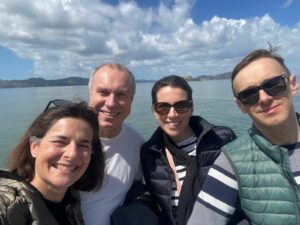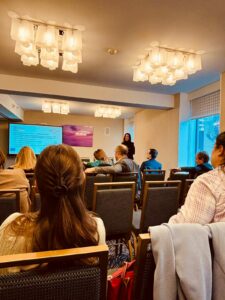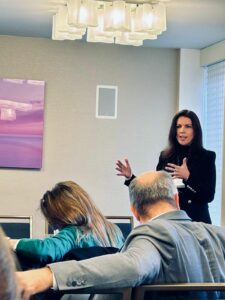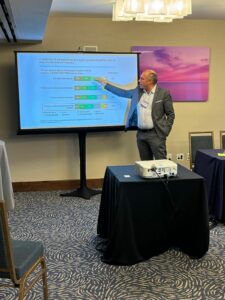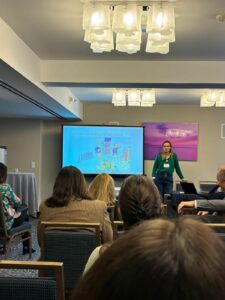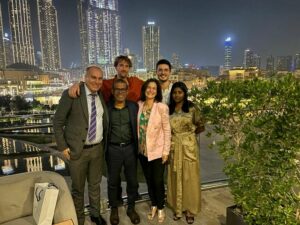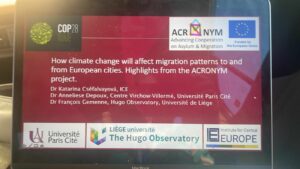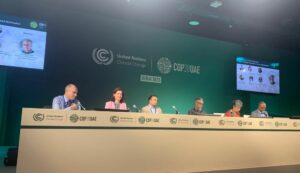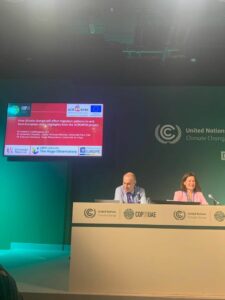Bratislava, 26.6.2024
In June 2024, the Acronym Project successfully organised its second policy dialogue, titled “Migration Matters: From Crisis Management to Sustainable Solutions”. This insightful event, moderated by Katarína Cséfalvayová from the Institute for Central Europe, brought together policy representatives to discuss pressing issues related to migration and asylum.
The first part of the policy dialogue featured Paula Puškárová, Member of the Slovak National Council under political party Hlas, alongside Zuzana Števulová, Member of the Slovak National Council under political party Progresívne Slovensko. In the second part, an insightful interview was conducted with Eduard Heger, the former Prime Minister of Slovakia.
The policy dialogue began by addressing the role of research and science-based evidence in public debate, particularly its conspicuous absence in public debates on migration and asylum, in contrast with some other policy areas such as climate governance. Both guests emphasised the importance of integrating research findings into migration policy discussions. They noted that migration debates are often driven by emotional narratives and political agendas, rather than factual evidence. Fostering a culture of evidence-based policy making in migration requires concerted and continuous efforts to educate politicians and the public about the migration and asylum. There is a strong need for collaboration between researchers and policymakers to ensure that scientific findings are accessible and applicable to real-world scenarios.
Drawing from their extensive experience in migration governance, both guests shared insights on how perceptions of migration are formed within the population. They agreed that media portrayal and political rhetoric significantly influence public opinion, often leading to spread of disinformation and misinformation. Personal experience and positive storytelling, showcasing successful integration stories and explaining policies regarding the migration and asylum in Slovakia and elsewhere in Europe can bring the change of the narrative around migration.
The dialogue also explored the relevance of integration policies in countries with relatively small immigrant populations, such as the Slovak Republic and the broader Central and Eastern European region. Both Paula Puškárová and Zuzana Števulová affirmed the necessity of having advanced migration, asylum as well as integration policies regardless of the size of the immigrant population. Proactive integration policies are crucial for social cohesion and can prevent future societal tensions. Policies should be tailored to the specific context of each country, but must include access to education, employment opportunities, and social services to ensure that migrants can contribute meaningfully to their new communities.
Following the initial discussions of the policy dialogue, the second part featured a conversation with the former Prime Minister of the Slovak Republic, Eduard Heger. The Prime Minister recounted his experience dealing with migration flows mainly from Ukraine during his tenure. He highlighted the complexities and multifaceted nature of migration, explaining how not only economic, social, and political factors intersect to influence policy decisions, but also social pressure from different stakeholders, international partners and the general public. He stressed the challenges of navigating public opinion and media narratives.
Furthermore, he emphasised the need for collaborative efforts between countries to manage migration flows and support refugees. Echoing earlier discussions, the former Prime Minister also underscored the importance of evidence-based policy making. He advocated for the integration of research and data into the development and implementation of migration and asylum policies in Slovakia.
The policy dialogue highlighted the urgent need for a shift towards evidence-based migration and asylum policies and the importance of addressing public perceptions and integration challenges. By bringing together policymakers, researchers, and community leaders, the Acronym Project continues to foster meaningful discussions that pave the way for sustainable solutions in migration governance. The insights from all guests, Paula Puškárová, Zuzana Števulová and Eduard Heger, underscore the need for courteous dialogue in the public space in order to bring informed and compassionate approaches to migration policy in the Slovak Republic and beyond.
